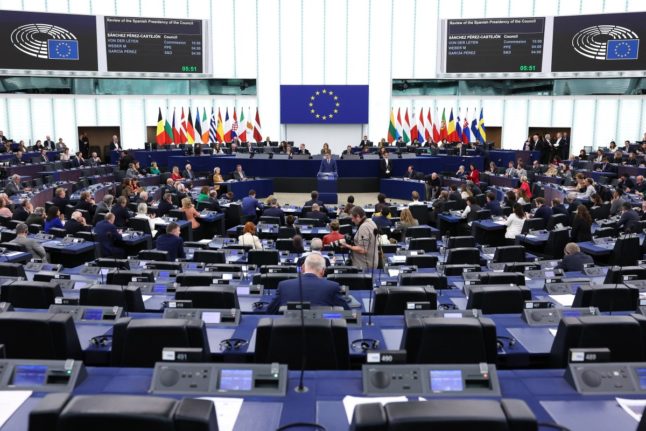The region of Upper Bavaria, which includes Munich, has an unemployment rate of 2.6 percent.
The 2013 figures, published by the European Union's official statistics office Eurostat, showed a vast unemployment disparity across Europe – ranging from under three percent in parts of southern Germany to 36.3 percent in Andalucia, Spain.
The city of Freiburg, in the state of Baden-Württemberg, boasted the next-lowest unemployment rate in Europe – at 2.9 percent – alongside Salzburg in Austria.
The entire European top ten was dominated by regions in southern Germany – while almost all of the regions with the highest unemployment rate were in Spain.
In all, 23 regions in Germany had an unemployment rate of 5.4 percent or below, half the EU average.
But almost 25 years after the Berlin Wall fell, there is still a clear difference in unemployment rates between the states of the former communist East Germany and the western states.

Peter Driessen, head of the Upper Bavarian Chamber of Commerce and Industry welcomed the figure for his region. "That means we have de facto full employment," he told The Local. "Considering the problems our EU partners are having that is more than pleasing."
"But the record figure doesn't come as a surprise," he added. "We at the Chamber of Commerce know exactly how strong and competitive our companies are."
He claimed that no other region of Germany boasts a comparable concentration of tech firms and market leaders: "Others talk about globalization, in Upper Bavaria we use it."
The gulf across Europe was even more notable in the 15-24 age bracket. The region of Tübingen, Baden-Württemberg, had the lowest rate at 4.4 percent, and the autonomous Spanish enclave of Sebtah, on the northern tip of Morocco, had a staggering 72.7 percent unemployment rate among young people.
Within Germany, the highest unemployment rates were once again in the capital city. Berlin still had an unemployment rate of 10.6 percent in 2013 – the same as the year before and double the German average. Among 15 to 24-year-olds the rate was 14.3 percent.
But Leif Erichsen, spokesman for Berlin's Chamber of Commerce and Industry, was bullish about the figures.
"We have seen a real job boom in Berlin for years," he told The Local. "In 2013 alone 32,000 new jobs were created in Berlin – that's the most of all the German states."
Pointing out that the unemployment figures are calculated slightly differently in Germany than at the EU level, Erichsen added: "In November 2013 the number of unemployed fell under the psychologically important mark of 200,000. The last time so few people registered unemployed was in September 1993 – so over 20 years ago."
SEE ALSO: The ten best German firms to work for





 Please whitelist us to continue reading.
Please whitelist us to continue reading.
Member comments